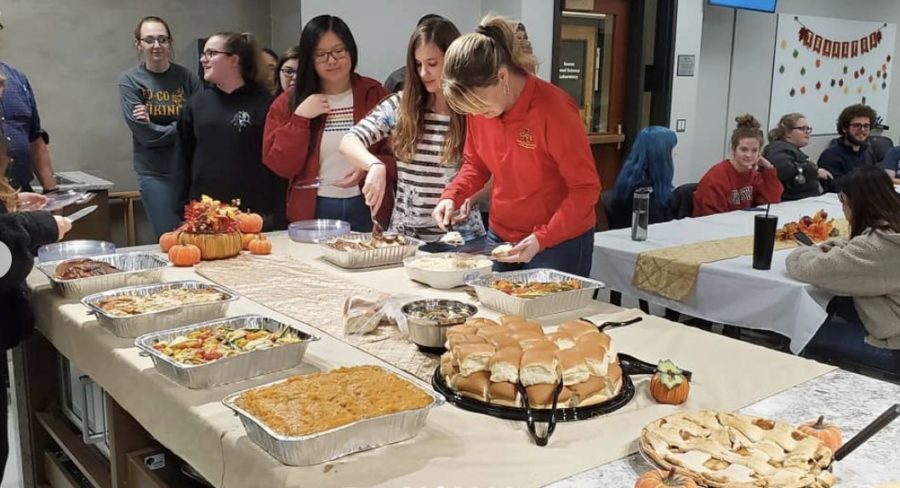Food science students work to improve food quality and develop new food products
March 10, 2020
Students in food science gain experience through research and internships to improve the quality, safety and nutrition of food while also working to develop new products.
Kate Moody, senior in food science, said she started college in a different major but knew she wanted to pursue a science-related field.
“Food science is something that I did not know was a major until I came to college,” Moody said. “A lot of people think it’s more of dietetics and nutrition but it’s actually a lot of the microbiology and chemistry behind the food and how the ingredients interact with each other, the safety, the quality aspects of it.”
Moody had an internship where she worked on food safety research. Her two main projects were looking at various meat products and seeing the different time and temperature regulations and experimenting with temperature abuse situations.
Moody talked about how she discovered food science as a major and why she chose to take that path.
“I sat down with my sister my freshman year and we went through tons of majors and did a bunch of research and contacted a lot of people and I just came across food science,” Moody said. “I like science, I love food, I love eating food, so that’s honestly how I picked it.”
Moody is graduating this spring and has a position set up with Hormel Foods in Austin, Minnesota.
“My job title [will be] associate quality and process control supervisor,” Moody said. “So I will be in their corporate food plant managing four to 10 quality assurance technicians.”
Ruth MacDonald, assistant dean of food science and human nutrition, has been the chair of the department at Iowa State for 15 years.
MacDonald said an activity the food science department offers is a competition for students to participate in during the spring semester. Students are given ingredients to make a food product and then demonstrate their products before judges. The judges look for how the students made their food, technical issues they had when making the product and the marketing and price of the product.
Students in the food science department also work with plastics, packaging, reducing packaging waste and improving packaging quality. Students study the science of how the packages interact with different products.
“Food science is a career path that has so many opportunities,” MacDonald said. “It is a global industry. There are food companies here in Iowa that are global in their scope. The opportunities are unlimited as far as the kinds of jobs you can have in the food industry.”
MacDonald said there are many components to food science and food science careers besides what people usually think of. Jobs are available with ingredient companies, packaging companies, marketing food products and with the instruments and equipment that go into processing plants.
Lindsey Landego, senior in food science, has always been passionate about science and food.
“I love chemistry, physics, biology, all those things,” Landego said. “I’ve also always loved cooking with my family and as I got older I started to cook more extravagant things and making it as cool and unique as I could […]. When I found out I could combine two of my loves – cooking and science – I was like ‘why not’ and fell in love with it.”
Landego is graduating this spring and also accepted a position with Hormel Foods to work with quality and process control. Landego said food science is full of science-heavy concepts and sometimes people don’t understand what it really is.
“It is not a very common field of study,” Landego said. “I wish people understood that we are the people that put food in the grocery store. We are the people that make sure food doesn’t kill you from bacteria and is safe to consume.”







